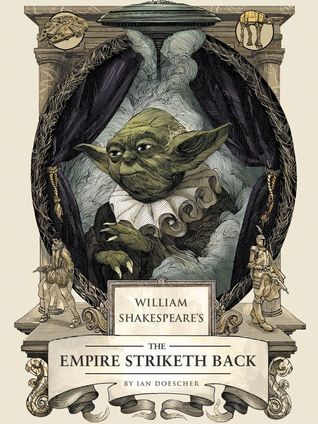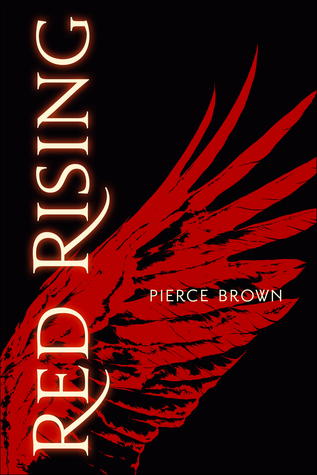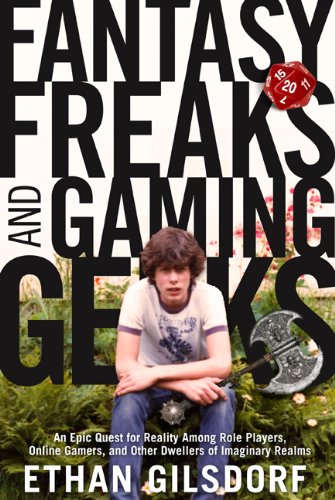You are using an out of date browser. It may not display this or other websites correctly.
You should upgrade or use an alternative browser.
You should upgrade or use an alternative browser.
What are you currently reading? Post here!
- Thread starter mrchainsaw
- Start date
eldergamer
CAGiversary!
Finished Cosmonaut Keep. Didn't care for it that much. was an okay book but nothing happened.
Will start Dragon Weather tonight. Seems pretty generic but I've enjoyed other Lawrence Watt-Evans books.
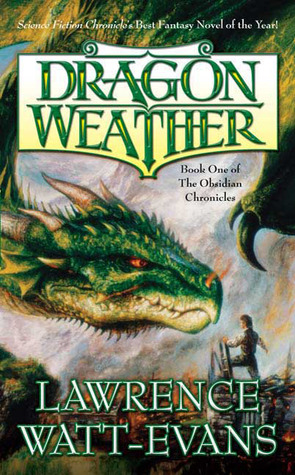
Will start Dragon Weather tonight. Seems pretty generic but I've enjoyed other Lawrence Watt-Evans books.

ViolentLee
CAGiversary!
- Feedback
- 81 (100%)
Finishing up Brian Ashcraft's Japanese Schoolgirl Confidential. As I'm learning Japanese and becoming a big fan of idol group morning musume, it's pretty enlightening.


Recently finished The Final Day at Westfield Arcade by Andy Hunt
http://www.amazon.com/The-Final-Day-Westfield-Arcade/dp/0615838863/ref=sr_1_1?ie=UTF8&qid=1389754242&sr=8-1&keywords=Westfield+arcade

This book is absolutely spectacular. If you ever spent any time at an arcade in the 80s or 90s you will truly appreciate this book. This intricate novel not only deals with the rise, fall, rebirth and ultimate demise of arcades but also love, loss of loved ones and how our decisions can affect others. There are tons of pop culture references from the 80s and 90s and all of the arcade gaming descriptions and timeline are spot on. Much of the story is told in flashbacks and the author's outstanding writing will keep you enthralled until the end. I truly felt like a part of the Westfield Arcade by the end and it made me misty for my own Halcyon days at the arcade which were remarkably similar to those described in the story.
If you aren't convinced read the first 10 pages on Amazon's preview. That should be enough to hook you in. I know it did me.
http://www.amazon.com/The-Final-Day-Westfield-Arcade/dp/0615838863/ref=sr_1_1?ie=UTF8&qid=1389754242&sr=8-1&keywords=Westfield+arcade

This book is absolutely spectacular. If you ever spent any time at an arcade in the 80s or 90s you will truly appreciate this book. This intricate novel not only deals with the rise, fall, rebirth and ultimate demise of arcades but also love, loss of loved ones and how our decisions can affect others. There are tons of pop culture references from the 80s and 90s and all of the arcade gaming descriptions and timeline are spot on. Much of the story is told in flashbacks and the author's outstanding writing will keep you enthralled until the end. I truly felt like a part of the Westfield Arcade by the end and it made me misty for my own Halcyon days at the arcade which were remarkably similar to those described in the story.
If you aren't convinced read the first 10 pages on Amazon's preview. That should be enough to hook you in. I know it did me.
Last edited by a moderator:
sublime90
CAGiversary!
Ive been really interested in tim ferriss lately so i bought his 3 books. right now im currently reading the "4 hour body" pretty interesting stuff. the other 2 will follow shortly after [attachment=3120:4hour body.jpg]
[attachment=3121:4hour workweek.jpg][attachment=3122:4hour chef.jpg]
Last edited by a moderator:
eldergamer
CAGiversary!
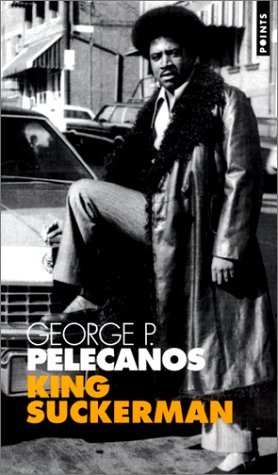
King Suckerman by George Pelecanos. It's a great noir-style tribute to the 70s and blaxplotation flicks.
SweetP1983
CAGiversary!
- Feedback
- 44 (100%)
Currently reading 11/22/63 by Stephen King. Great alternate history read so far.


Last edited by a moderator:
eldergamer
CAGiversary!
It's only 300 pages so I nearly finished this during a slightly slow weekend at work.
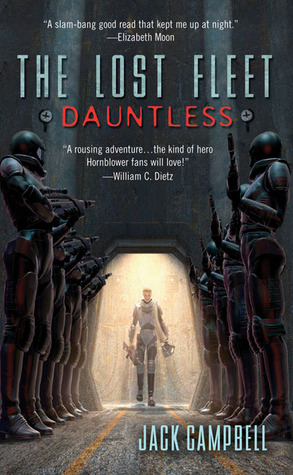
Military Sci-Fi. Actually much better than I expected.

Military Sci-Fi. Actually much better than I expected.
NathanGerrard
CAGiversary!
- Feedback
- 6 (100%)
Right now I'm reading "The 120 Days Of Sodom And Other Writings" by Marquis De Sade
and also
"Dr. Sleep" by Stephen King which is a really great book.
and also
"Dr. Sleep" by Stephen King which is a really great book.
eldergamer
CAGiversary!
Midnight Tides. Book 5 in a series. Book is 900 pages should take a month to finish. (That,and I have to keep looking things up online to figure out who all these characters are)
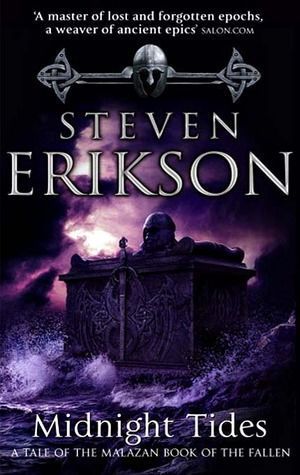

This book predicted how things would be in 2010, back in 1969! Even predicted Obama being president!
http://www.themillions.com/2013/03/the-weird-1969-new-wave-sci-fi-novel-that-correctly-predicted-the-current-day.html
Stand on Zanzibar is that rarity among science fiction novels — it really made accurate predictions about the future. The book, published in 1969, is set in the year 2010, and this allows us to make a point-by-point comparison, and marvel at novelist John Brunner’s uncanny ability to anticipate the shape of the world to come. Indeed, his vision of the year 2010 even includes a popular leader named President Obomi — face it,Nate Silver himself couldn’t have done that back in 1969!
Let me list some of the other correct predictions in Brunner’s book:
(1) Random acts of violence by crazy individuals, often taking place at schools, plague society in Stand on Zanzibar.
(2) The other major source of instability and violence comes from terrorists, who are now a major threat to U.S. interests, and even manage to attack buildings within the United States.
(3) Prices have increased sixfold between 1960 and 2010 because of inflation. (The actual increase in U.S. prices during that period was sevenfold, but Brunner was close.)
(4) The most powerful U.S. rival is no longer the Soviet Union, but China. However, much of the competition between the U.S. and Asia is played out in economics, trade, and technology instead of overt warfare.
(5) Europeans have formed a union of nations to improve their economic prospects and influence on world affairs. In international issues, Britain tends to side with the U.S., but other countries in Europe are often critical of U.S. initiatives.
(6) Africa still trails far behind the rest of the world in economic development, and Israel remains the epicenter of tensions in the Middle East.
(7) Although some people still get married, many in the younger generation now prefer short-term hookups without long-term commitment.
(8) Gay and bisexual lifestyles have gone mainstream, and pharmaceuticals to improve sexual performance are widely used (and even advertised in the media).
(9) Many decades of affirmative action have brought blacks into positions of power, but racial tensions still simmer throughout society.
(10) Motor vehicles increasingly run on electric fuel cells. Honda (primarily known as a motorcycle manufacturers when Brunner wrote his book) is a major supplier, along with General Motors.
(11) Yet Detroit has not prospered, and is almost a ghost town because of all the shuttered factories. However. a new kind of music — with an uncanny resemblance to the actual Detroit techno movement of the 1990s — has sprung up in the city.
(12) TV news channels have now gone global via satellite.
(13) TiVo-type systems allow people to view TV programs according to their own schedule.
(14) Inflight entertainment systems on planes now include video programs and news accessible on individual screens at each seat.
(15) People rely on avatars to represent themselves on video screens — Brunner calls these images, which either can look like you or take on another appearance you select — “Mr. and Mrs. Everywhere.”
(16) Computer documents are generated with laser printers.
(17) A social and political backlash has marginalized tobacco, but marijuana has been decriminalized.
 Other science fiction books have occasionally made successful predictions, from Jules Verne’s Around the Moon (1865), which eerily anticipated many details of the Apollo program, to William Gibson’s Neuromancer(1984) with its descriptions of cyberspace and hackers. But Brunner’s work stands out as the most uncanny anticipation of what would actually change — and what would stay the same — in the decades following its publication. Certainly, there are many details, large and small, that Brunner got wrong. But even when the particulars don’t ring true, the overarching theme ofStand on Zanzibar, which is the hidden cost of our obsession with human perfectibility, is just as relevant today as when Brunner wrote his novel.
Other science fiction books have occasionally made successful predictions, from Jules Verne’s Around the Moon (1865), which eerily anticipated many details of the Apollo program, to William Gibson’s Neuromancer(1984) with its descriptions of cyberspace and hackers. But Brunner’s work stands out as the most uncanny anticipation of what would actually change — and what would stay the same — in the decades following its publication. Certainly, there are many details, large and small, that Brunner got wrong. But even when the particulars don’t ring true, the overarching theme ofStand on Zanzibar, which is the hidden cost of our obsession with human perfectibility, is just as relevant today as when Brunner wrote his novel.
In this book, each of the major characters is on a mission to improve the human race, and in ways that are all-too-familiar to us today. Sometimes this preoccupation manifests itself in legislation and regulation; politics — both national and global — increasingly manifests itself as a competition between different schemes for human improvement in Stand on Zanzibar. Certainly that attitude shows no sign of going out of style in the current day. Even minor characters in Stand on Zanzibar distinguish themselves by their zeal for upgrading the species, whether through writing books filled with advice and indictments, or business investment in impoverished regions, or implementing ambitious software programs that improve the efficiency and quality of life, or just good, old psychological manipulation. These too are still part of our everyday life. But the most popular — and controversial — method of human improvement in the fictional world of 2010 presented by Brunner draws on biotechnology and the potential for tinkering with our DNA.
A few days before I wrote this essay, I ran across an article about a Harvard professor who proposes placing Stone Age genes in a human embryo, then implanting it in an “adventurous woman” who would serve as surrogate mother for the the resulting Neanderthal baby. This scenario sounds like something lifted straight from the pages of Stand on Zanzibar. In Brunner’s novel, a prominent professor named Sugaiguntung is working on a comparable line of research, and hopes to create superhumans by drawing on his experiences manipulating the DNA of orangutans. Indeed, the sci-fi story sounds more plausible than the news story.

 The plot is deliberately fractured and presented in fragments by Brunner, who modeled his work on John Dos Passos’s similarly structured (or rather unstructured) U.S.A. Trilogy. Like Dos Passos, he interjects headlines, bits of news stories, song lyrics, self-contained background interludes, and other cultural bric-à-brac into his narrative. But unlike Dos Passos, Brunner finds ways of pulling the different threads together into extravagant new shapes — most notably in the final pages, when a novel that seems too disparate to cohere surprises readers by the elegance with which all the pieces come together. And though there are many things to admire in this prickly, unconventional book, perhaps the most impressive feat is our author’s ability to maintain tight control with a clear sense of purpose and direction even when the narrative appears the most anarchic and chaotic. Put another way, what originally comes across as a free-spirited 1960s novel, long on attitude but short on clarity, turns out to have more in common with those artful new millennium novels, such as Cloud Atlas, A Visit from the Goon Squad, or Gods Without Men, in which all the storylines converge, the colorful subplots fitting together into a brilliant and unexpected mosaic.
The plot is deliberately fractured and presented in fragments by Brunner, who modeled his work on John Dos Passos’s similarly structured (or rather unstructured) U.S.A. Trilogy. Like Dos Passos, he interjects headlines, bits of news stories, song lyrics, self-contained background interludes, and other cultural bric-à-brac into his narrative. But unlike Dos Passos, Brunner finds ways of pulling the different threads together into extravagant new shapes — most notably in the final pages, when a novel that seems too disparate to cohere surprises readers by the elegance with which all the pieces come together. And though there are many things to admire in this prickly, unconventional book, perhaps the most impressive feat is our author’s ability to maintain tight control with a clear sense of purpose and direction even when the narrative appears the most anarchic and chaotic. Put another way, what originally comes across as a free-spirited 1960s novel, long on attitude but short on clarity, turns out to have more in common with those artful new millennium novels, such as Cloud Atlas, A Visit from the Goon Squad, or Gods Without Men, in which all the storylines converge, the colorful subplots fitting together into a brilliant and unexpected mosaic.
Two diverging plot lines dominate the novel. Norman House is an African-American who has joined the senior management of GT, a multinational corporation akin to General Electric. To advance his career and staunch his growing alienation, House signs on to an ambitious project in Africa that promises both to make bundles of money and also improve the quality of life for the citizens of a desperately poor Third World nation. At almost the same moment, House’s roommate Donald Hogan embarks on an even more challenging project — one that requires him to operate as a spy in a hostile Asian country, loosely based on Indonesia, where amazing breakthroughs in genetic research have been announced.
These two plot lines will eventually come together, but Brunner takes his time in this big, discursive book, and much of the appeal from Stand on Zanzibar comes from the subplots and minor characters. A bohemian author named Chad C. Mulligan provides both insight and comic relief in equal doses, and is such a persuasive figure that he deserves to star in a novel of his own. Guinivere Steel, the hard-edged leader of a boutique chain, is another compelling figure who only gets a bit part. Her specialty is throwing extravagant society parties in which the entertainment is built around her humiliation of the guests, especially those she doesn’t want to invite to her next soirée. And, staying true to a time-honored sci-fi tradition, Brunner includes one top-notch digital character, the computer Shalmaneser, which is to the GT Corp what that chess-playing electronic brain Deep Blue is to IBM.
As I look back at the remarkable burst of experimentation in science fiction during the 1960s, led primarily by the younger New Wave authors, I am frequently disappointed by how few of them hold up nowadays. Too often, bold techniques that promised to open up new terrain to SF during the 1960s and 1970s ended up as stylistic dead ends by the time we got to the 1980s and 1990s. But Brunner, older than most of the other New Wave authors and in some ways the least likely to deliver a breakthrough novel — he had been churning out conventional genre books, sometimes a half-dozen or more in a single year, for almost two decades when he published Stand on Zanzibar — raised the ante further in these pages and won on his big bet. And he did so with a risky gambit, in which both form and content were stretched to their limits. That he managed to get so many predictions right along the way is to his credit, but hardly the only reason to read this one-of-a-kind novel.
Let me list some of the other correct predictions in Brunner’s book:
(1) Random acts of violence by crazy individuals, often taking place at schools, plague society in Stand on Zanzibar.
(2) The other major source of instability and violence comes from terrorists, who are now a major threat to U.S. interests, and even manage to attack buildings within the United States.
(3) Prices have increased sixfold between 1960 and 2010 because of inflation. (The actual increase in U.S. prices during that period was sevenfold, but Brunner was close.)
(4) The most powerful U.S. rival is no longer the Soviet Union, but China. However, much of the competition between the U.S. and Asia is played out in economics, trade, and technology instead of overt warfare.
(5) Europeans have formed a union of nations to improve their economic prospects and influence on world affairs. In international issues, Britain tends to side with the U.S., but other countries in Europe are often critical of U.S. initiatives.
(6) Africa still trails far behind the rest of the world in economic development, and Israel remains the epicenter of tensions in the Middle East.
(7) Although some people still get married, many in the younger generation now prefer short-term hookups without long-term commitment.
(8) Gay and bisexual lifestyles have gone mainstream, and pharmaceuticals to improve sexual performance are widely used (and even advertised in the media).
(9) Many decades of affirmative action have brought blacks into positions of power, but racial tensions still simmer throughout society.
(10) Motor vehicles increasingly run on electric fuel cells. Honda (primarily known as a motorcycle manufacturers when Brunner wrote his book) is a major supplier, along with General Motors.
(11) Yet Detroit has not prospered, and is almost a ghost town because of all the shuttered factories. However. a new kind of music — with an uncanny resemblance to the actual Detroit techno movement of the 1990s — has sprung up in the city.
(12) TV news channels have now gone global via satellite.
(13) TiVo-type systems allow people to view TV programs according to their own schedule.
(14) Inflight entertainment systems on planes now include video programs and news accessible on individual screens at each seat.
(15) People rely on avatars to represent themselves on video screens — Brunner calls these images, which either can look like you or take on another appearance you select — “Mr. and Mrs. Everywhere.”
(16) Computer documents are generated with laser printers.
(17) A social and political backlash has marginalized tobacco, but marijuana has been decriminalized.
 Other science fiction books have occasionally made successful predictions, from Jules Verne’s Around the Moon (1865), which eerily anticipated many details of the Apollo program, to William Gibson’s Neuromancer(1984) with its descriptions of cyberspace and hackers. But Brunner’s work stands out as the most uncanny anticipation of what would actually change — and what would stay the same — in the decades following its publication. Certainly, there are many details, large and small, that Brunner got wrong. But even when the particulars don’t ring true, the overarching theme ofStand on Zanzibar, which is the hidden cost of our obsession with human perfectibility, is just as relevant today as when Brunner wrote his novel.
Other science fiction books have occasionally made successful predictions, from Jules Verne’s Around the Moon (1865), which eerily anticipated many details of the Apollo program, to William Gibson’s Neuromancer(1984) with its descriptions of cyberspace and hackers. But Brunner’s work stands out as the most uncanny anticipation of what would actually change — and what would stay the same — in the decades following its publication. Certainly, there are many details, large and small, that Brunner got wrong. But even when the particulars don’t ring true, the overarching theme ofStand on Zanzibar, which is the hidden cost of our obsession with human perfectibility, is just as relevant today as when Brunner wrote his novel.In this book, each of the major characters is on a mission to improve the human race, and in ways that are all-too-familiar to us today. Sometimes this preoccupation manifests itself in legislation and regulation; politics — both national and global — increasingly manifests itself as a competition between different schemes for human improvement in Stand on Zanzibar. Certainly that attitude shows no sign of going out of style in the current day. Even minor characters in Stand on Zanzibar distinguish themselves by their zeal for upgrading the species, whether through writing books filled with advice and indictments, or business investment in impoverished regions, or implementing ambitious software programs that improve the efficiency and quality of life, or just good, old psychological manipulation. These too are still part of our everyday life. But the most popular — and controversial — method of human improvement in the fictional world of 2010 presented by Brunner draws on biotechnology and the potential for tinkering with our DNA.
A few days before I wrote this essay, I ran across an article about a Harvard professor who proposes placing Stone Age genes in a human embryo, then implanting it in an “adventurous woman” who would serve as surrogate mother for the the resulting Neanderthal baby. This scenario sounds like something lifted straight from the pages of Stand on Zanzibar. In Brunner’s novel, a prominent professor named Sugaiguntung is working on a comparable line of research, and hopes to create superhumans by drawing on his experiences manipulating the DNA of orangutans. Indeed, the sci-fi story sounds more plausible than the news story.

 The plot is deliberately fractured and presented in fragments by Brunner, who modeled his work on John Dos Passos’s similarly structured (or rather unstructured) U.S.A. Trilogy. Like Dos Passos, he interjects headlines, bits of news stories, song lyrics, self-contained background interludes, and other cultural bric-à-brac into his narrative. But unlike Dos Passos, Brunner finds ways of pulling the different threads together into extravagant new shapes — most notably in the final pages, when a novel that seems too disparate to cohere surprises readers by the elegance with which all the pieces come together. And though there are many things to admire in this prickly, unconventional book, perhaps the most impressive feat is our author’s ability to maintain tight control with a clear sense of purpose and direction even when the narrative appears the most anarchic and chaotic. Put another way, what originally comes across as a free-spirited 1960s novel, long on attitude but short on clarity, turns out to have more in common with those artful new millennium novels, such as Cloud Atlas, A Visit from the Goon Squad, or Gods Without Men, in which all the storylines converge, the colorful subplots fitting together into a brilliant and unexpected mosaic.
The plot is deliberately fractured and presented in fragments by Brunner, who modeled his work on John Dos Passos’s similarly structured (or rather unstructured) U.S.A. Trilogy. Like Dos Passos, he interjects headlines, bits of news stories, song lyrics, self-contained background interludes, and other cultural bric-à-brac into his narrative. But unlike Dos Passos, Brunner finds ways of pulling the different threads together into extravagant new shapes — most notably in the final pages, when a novel that seems too disparate to cohere surprises readers by the elegance with which all the pieces come together. And though there are many things to admire in this prickly, unconventional book, perhaps the most impressive feat is our author’s ability to maintain tight control with a clear sense of purpose and direction even when the narrative appears the most anarchic and chaotic. Put another way, what originally comes across as a free-spirited 1960s novel, long on attitude but short on clarity, turns out to have more in common with those artful new millennium novels, such as Cloud Atlas, A Visit from the Goon Squad, or Gods Without Men, in which all the storylines converge, the colorful subplots fitting together into a brilliant and unexpected mosaic.Two diverging plot lines dominate the novel. Norman House is an African-American who has joined the senior management of GT, a multinational corporation akin to General Electric. To advance his career and staunch his growing alienation, House signs on to an ambitious project in Africa that promises both to make bundles of money and also improve the quality of life for the citizens of a desperately poor Third World nation. At almost the same moment, House’s roommate Donald Hogan embarks on an even more challenging project — one that requires him to operate as a spy in a hostile Asian country, loosely based on Indonesia, where amazing breakthroughs in genetic research have been announced.
These two plot lines will eventually come together, but Brunner takes his time in this big, discursive book, and much of the appeal from Stand on Zanzibar comes from the subplots and minor characters. A bohemian author named Chad C. Mulligan provides both insight and comic relief in equal doses, and is such a persuasive figure that he deserves to star in a novel of his own. Guinivere Steel, the hard-edged leader of a boutique chain, is another compelling figure who only gets a bit part. Her specialty is throwing extravagant society parties in which the entertainment is built around her humiliation of the guests, especially those she doesn’t want to invite to her next soirée. And, staying true to a time-honored sci-fi tradition, Brunner includes one top-notch digital character, the computer Shalmaneser, which is to the GT Corp what that chess-playing electronic brain Deep Blue is to IBM.
As I look back at the remarkable burst of experimentation in science fiction during the 1960s, led primarily by the younger New Wave authors, I am frequently disappointed by how few of them hold up nowadays. Too often, bold techniques that promised to open up new terrain to SF during the 1960s and 1970s ended up as stylistic dead ends by the time we got to the 1980s and 1990s. But Brunner, older than most of the other New Wave authors and in some ways the least likely to deliver a breakthrough novel — he had been churning out conventional genre books, sometimes a half-dozen or more in a single year, for almost two decades when he published Stand on Zanzibar — raised the ante further in these pages and won on his big bet. And he did so with a risky gambit, in which both form and content were stretched to their limits. That he managed to get so many predictions right along the way is to his credit, but hardly the only reason to read this one-of-a-kind novel.
http://www.themillions.com/2013/03/the-weird-1969-new-wave-sci-fi-novel-that-correctly-predicted-the-current-day.html
Last edited by a moderator:
Crimson King
CAGiversary!
Jhumpa Lahiri's The Namesake
I finished up The Companions last week. It was very good, but I'm not sure how I feel about him
Now reading:
One Hundred Years of Solitude by Gabriel Garcia Marquez (I'm for some reason getting a "you are not allowed to use that image extension on this community error) when trying to show the cover on Amazon. Weird.).
reincarnating Catti-brie, Regis, Bruenor and Wulfgar. I kind of liked that he'd finally killed of major characters. Hope it's not a jump the shark moment for the long running series.
Now reading:
One Hundred Years of Solitude by Gabriel Garcia Marquez (I'm for some reason getting a "you are not allowed to use that image extension on this community error) when trying to show the cover on Amazon. Weird.).
eldergamer
CAGiversary!
Took me about a month to finish Midnight Tides. But it was really damn good, best of those Malazan books so far.
Back to sci-fi now.
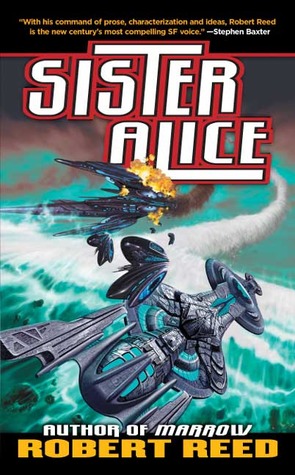
Back to sci-fi now.

WhipSmartBanky
CAGiversary!
- Feedback
- 8 (100%)
Just finished Christa Faust's FRINGE: Zodiac Paradox, James Sheehan's Alligator Man, about to start Daniel Suarez' Daemon and Freedom™.
Glad the book thread has risen from the death of April 2014. I like the idea of reading on a regular basis. The problem is life gets in the way. Working full time+ hours and having small children means free time is limited. When I do get that free time I have so many other entertainment options books fall to the bottom of the list. Games, movies, TV, internet and countless outdoor activities take up the majority of my free time. The majority of my reading is magazine's and internet sites. I used to read a lot of books on my lunch break when I would have to take an hour at a time. I no longer have that long break and instead take that hour broken up throughout the day. Lack of reading time rant over.
Revisited Douglas Adams Hitchhiker's Guide Trilogy (4 books) recently and had a great time with it. His writing style is very entertaining and humorous to me. I highly recommend this series to any sci fi fan with a sense of humor.
Have a few other books I might read first but I want to tackle the Dark Tower series by Stephen King. I read book 1 The Gunslinger years ago and really enjoyed it. Anybody here that has read the series and can recommend wether they all are as good as the first? Is it worth reading all the books?
Revisited Douglas Adams Hitchhiker's Guide Trilogy (4 books) recently and had a great time with it. His writing style is very entertaining and humorous to me. I highly recommend this series to any sci fi fan with a sense of humor.
Have a few other books I might read first but I want to tackle the Dark Tower series by Stephen King. I read book 1 The Gunslinger years ago and really enjoyed it. Anybody here that has read the series and can recommend wether they all are as good as the first? Is it worth reading all the books?
NeedleInTheHay
CAGiversary!
- Feedback
- 2 (100%)
Mr. Mercedes by Stephen King
Any good? Wikipedia says he has written 54 novels and over 200 short stories. If I get motivated enough someday I'll post a pic of all my King books. He wrote a novel about the JFK assassination ( 11/22/63 ) and a time traveller who tries to prevent the assassination. Sounds interesting and out of his comfort zone.Mr. Mercedes by Stephen King
NeedleInTheHay
CAGiversary!
- Feedback
- 2 (100%)
Yeah i'm about 80 pages in and i'm enjoying it so far.
WhipSmartBanky
CAGiversary!
- Feedback
- 8 (100%)
I have this in my book-backlog, will hopefully get to it soon.Any good? Wikipedia says he has written 54 novels and over 200 short stories. If I get motivated enough someday I'll post a pic of all my King books. He wrote a novel about the JFK assassination ( 11/22/63 ) and a time traveller who tries to prevent the assassination. Sounds interesting and out of his comfort zone.
WhipSmartBanky
CAGiversary!
- Feedback
- 8 (100%)
Finished reading Daniel Suarez' Daemon. Not ready to pass judgement until I read Freedom™. I like the tech, theory; characters not so much.
samaside
CAGiversary!
I highly recommend Pierce Brown's Red Rising and Golden Son. I know it might seem like some stereotypical YA series at first glance and that's how they originally marketed it until people realized it was a pretty solid science fiction series. It's now categorized as an adult science fiction series and the first book was #3 on Entertainment Weekly's 2014 Must List. It's pretty great.
I'm a youth library assistant so that's pretty much the only adult recommendation I have.
I'm a youth library assistant so that's pretty much the only adult recommendation I have.
Nifty_Shark
CAGiversary!
I finished "Still Life with Woodpecker" a few weeks back. I liked it but I feel like it would have meant more to me around high school or just out of high school
eldergamer
CAGiversary!
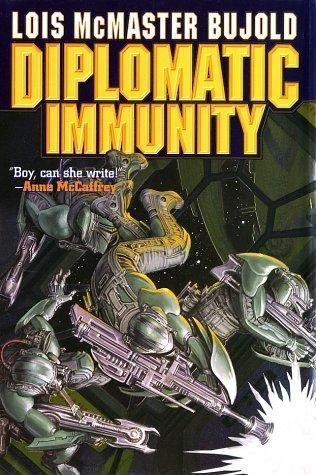
Another Miles Vorskorigan novel. Book equivalent of comfort food.
Mirage Master
CAGiversary!
I read a good amount, just nothing particularly good lately. Last good thing I read was "City at the End of Time" by Greg Bear. I re-read things more often these days. Paradise War trilogy by Stephen Lawhead most recently.
Been wanting a Kindle keyboard since knowing of the free web browsing but missed out on the Target clearance. Recently found one at a pawn shop in a like-new condition for $10 which encouraged me to read the few free kindle books that I have downloaded over time. and out of those the one that caught my attention enough to progress more is Ravage: An Apocalyptic Horror Novel. The web browser is not really that good but in a pinch could log into GV and check my messages though FB does not open even though it is one of the built-in bookmarks.
WhipSmartBanky
CAGiversary!
- Feedback
- 8 (100%)
Free web browsing? Wha?Been wanting a Kindle keyboard since knowing of the free web browsing but missed out on the Target clearance. Recently found one at a pawn shop in a like-new condition for $10 which encouraged me to read the few free kindle books that I have downloaded over time. and out of those the one that caught my attention enough to progress more is Ravage: An Apocalyptic Horror Novel. The web browser is not really that good but in a pinch could log into GV and check my messages though FB does not open even though it is one of the built-in bookmarks.
shrike4242
CAGiversary!
- Feedback
- 1043 (100%)
Old Kindle units, the ones with the keyboard and built-in 3G modem have free web browsing, though it's Lynx-class browsing. Quick email here and there and that's about it.Free web browsing? Wha?
Mirage Master
CAGiversary!
That's neat. I don't do the digital book thing, but cool. 403 books on my shelf and counting.Old Kindle units, the ones with the keyboard and built-in 3G modem have free web browsing, though it's Lynx-class browsing. Quick email here and there and that's about it.
WhipSmartBanky
CAGiversary!
- Feedback
- 8 (100%)
I just went digging around in the settings and discovered this. I had no idea.Old Kindle units, the ones with the keyboard and built-in 3G modem have free web browsing, though it's Lynx-class browsing. Quick email here and there and that's about it.
shrike4242
CAGiversary!
- Feedback
- 1043 (100%)
Again, it's hardly anything spectacular, though it works in a pinch.I just went digging around in the settings and discovered this. I had no idea.
Lacey Cameron
CAG in Training
I am currently reading "The Alchemist" by Paulo Coelho. Actually, this is my second time to read it. And it is still as exciting as the first one.
samaside
CAGiversary!
I wasn't too impressed with Tigerman but I only made it about a third of the way through so I'll probably give it a shot again later.
Currently reading the new Zodiac Legacy book, the first in a middle grade series that Stan Lee "wrote" along with another author. The dialogue is terrible but so far it's a pretty standard middle grade action book. It's also freakin' gorgeous. The cover design, page design, and illustrations are awesome. It's a good looking book if nothing else.
Currently reading the new Zodiac Legacy book, the first in a middle grade series that Stan Lee "wrote" along with another author. The dialogue is terrible but so far it's a pretty standard middle grade action book. It's also freakin' gorgeous. The cover design, page design, and illustrations are awesome. It's a good looking book if nothing else.
Lacey Cameron
CAG in Training
Since the movie is out I'm currently reading/reviewing Fifty Shades of Grey.
samaside
CAGiversary!
I just finished Star Wars: Jedi Academy - The Phantom Bully by Jeffrey Brown. I'm not going to lie, they are adorable freakin' books. I got the first two from my 2014 Reddit Graphic Novel exchange match and so I picked up an ARC of the third one online from Scholastic. It was great. Super cute.
Next up is In Another World, Maybe which looks like it's going to be good.
Next up is In Another World, Maybe which looks like it's going to be good.
macsmith230
CAGiversary!
Just finished Red Rising the other day and now reading The Company, but K.J. Parker, which is awesome. Never ready anything by him before.
eldergamer
CAGiversary!
Finished
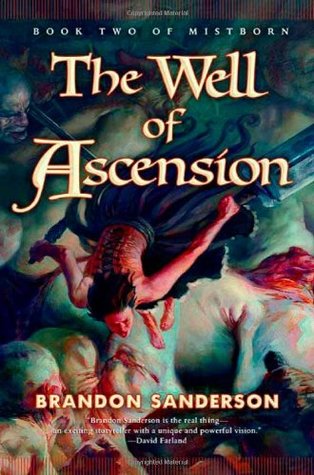
Now on to something a bit more literary. (only reason I picked it up at the library book sale)
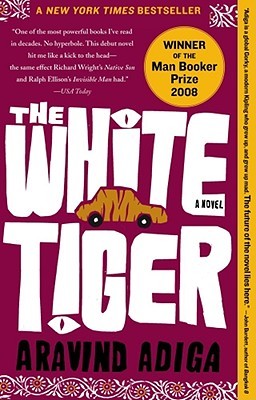

Now on to something a bit more literary. (only reason I picked it up at the library book sale)

shadowharold
CAG in Training
How to get rich quick.
Franklin4532
CAG in Training
All of us apprehend that online dissertation writing task is a hard process and almost every scholar desires help, there are numerous college students who regardless of the truth that start their paper with the aid of manner of themselves but somewhere on the middle of the paper they caught. Statistical dissertation help writer is the maximum requested professional dissertation writing provider in the modern-day statistics of tutorial writing services.
bread's done




